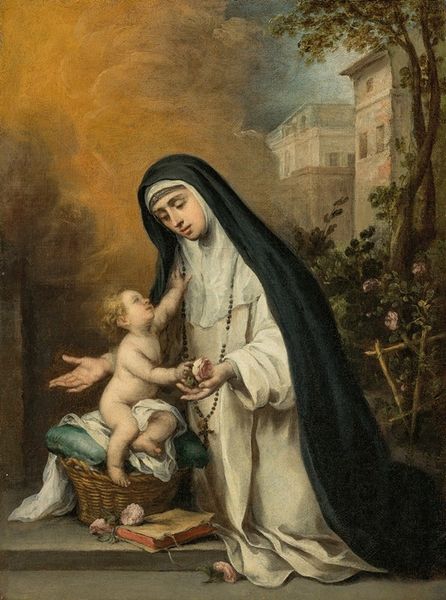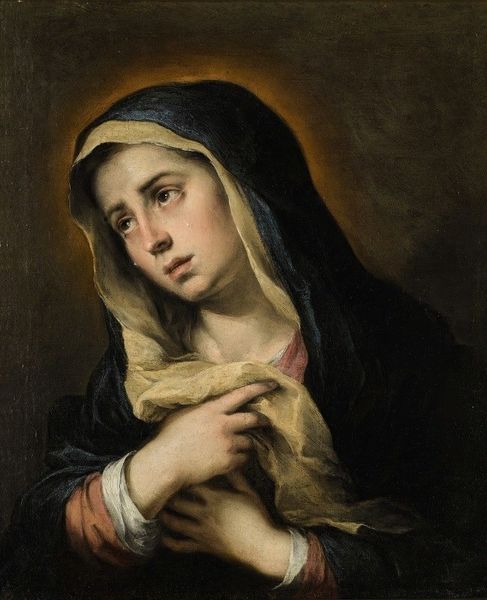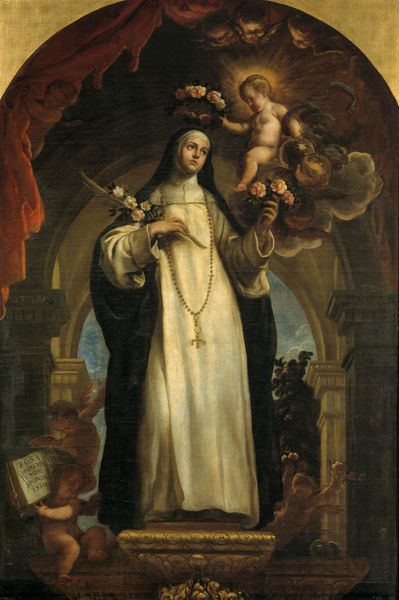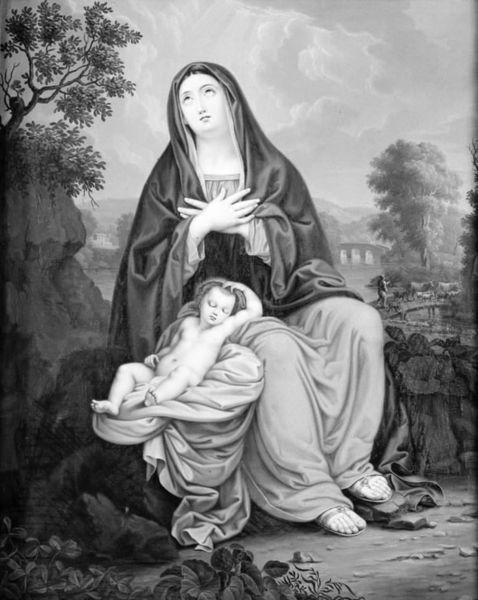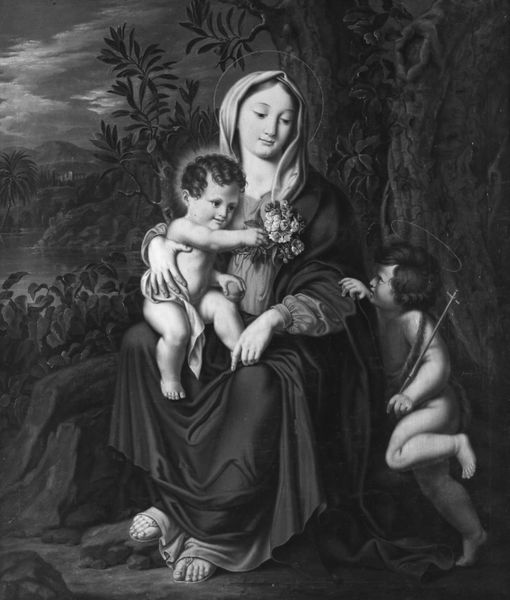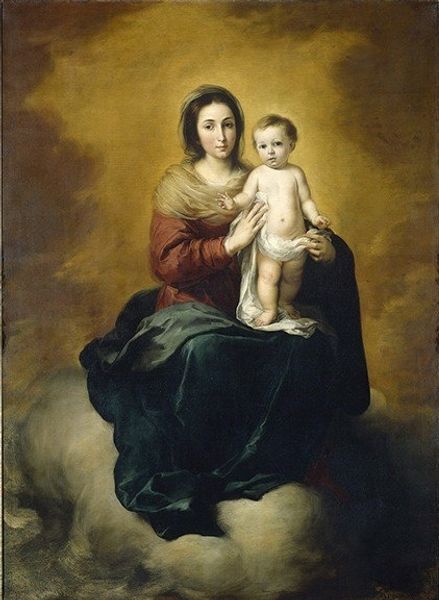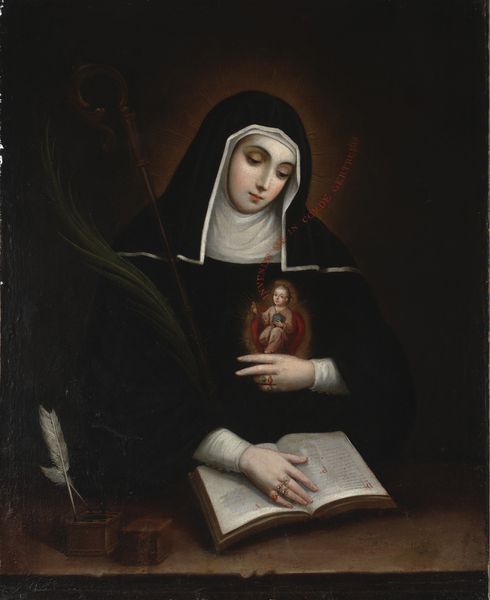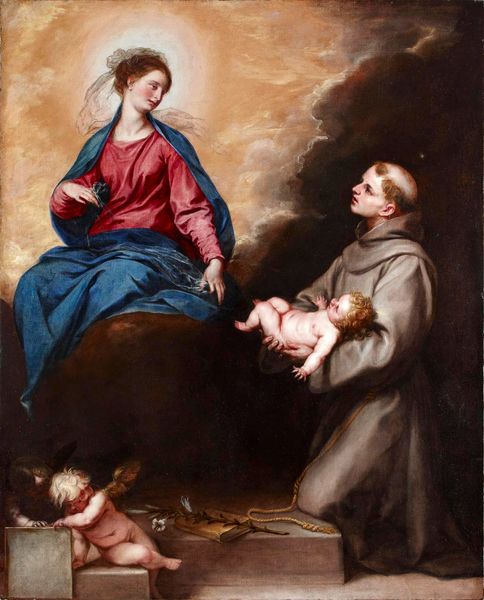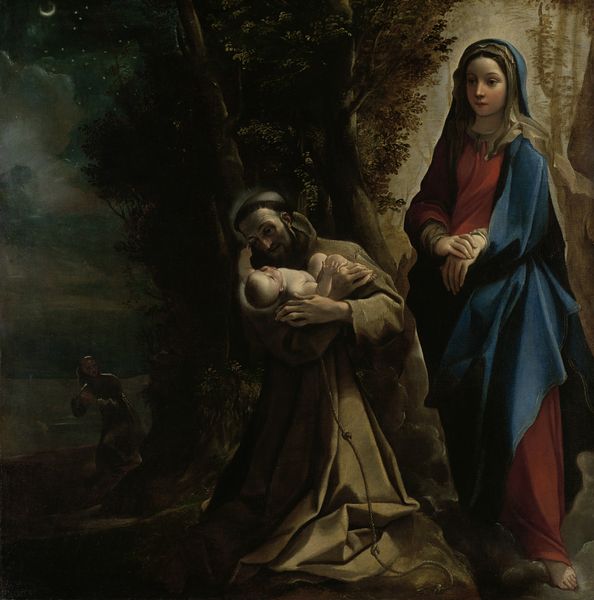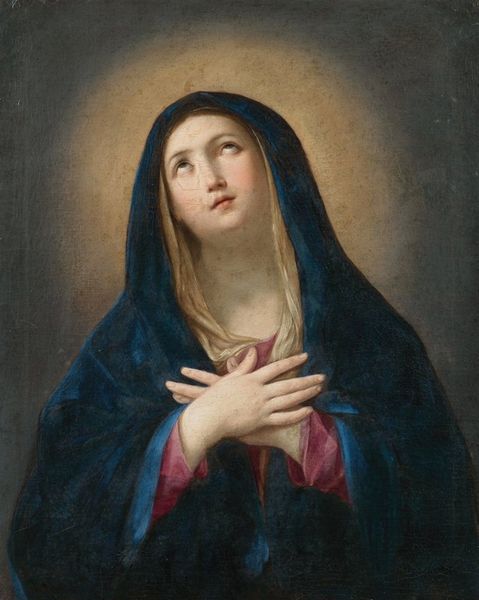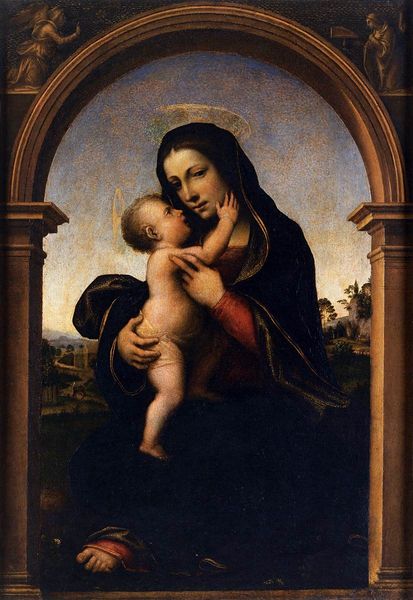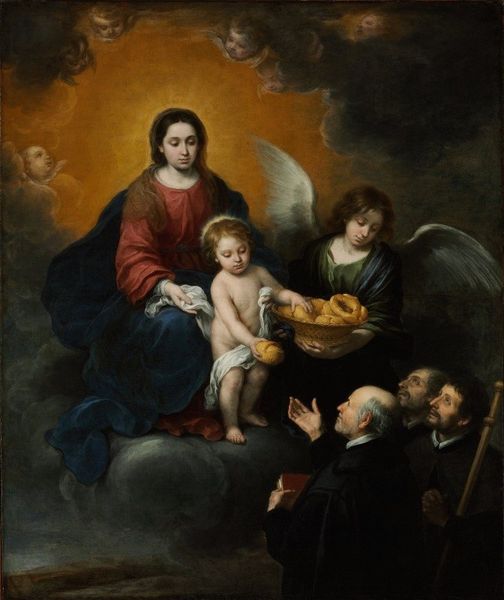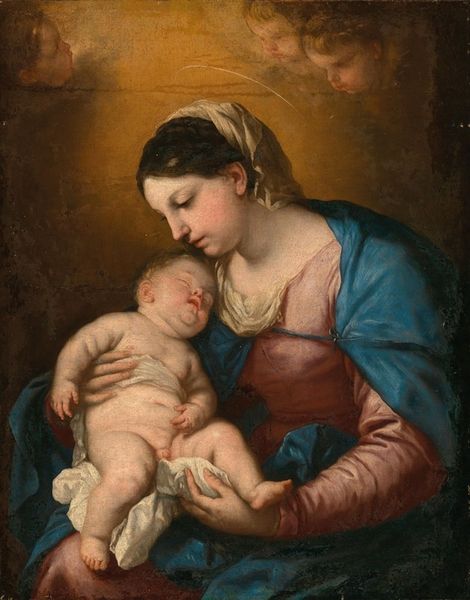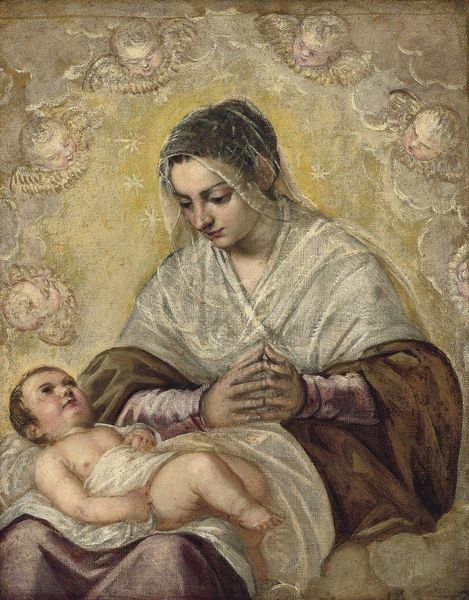
painting, oil-paint
#
portrait
#
allegory
#
baroque
#
painting
#
oil-paint
#
figuration
#
oil painting
#
history-painting
Copyright: Public Domain: Artvee
Bartolomé Estebán Murillo painted Saint Rose of Lima, likely in the second half of the 17th century. Observe how the composition presents a study in contrasts and formal balance. Murillo skillfully uses chiaroscuro, setting the figures against a dark backdrop, which intensifies the luminosity of Saint Rose and the Christ Child. The artist has constructed a semiotic framework using light and shadow, with brighter areas symbolizing divine grace. The dark tones symbolize earthly constraints or trials. Rose's posture, inclined yet dignified, reflects a formal tension between humility and spiritual authority. Consider how this formal arrangement communicates core tenets of Baroque spirituality. Murillo invites us to contemplate not just religious iconography but also the deeper interplay between form and content.
Comments
No comments
Be the first to comment and join the conversation on the ultimate creative platform.
